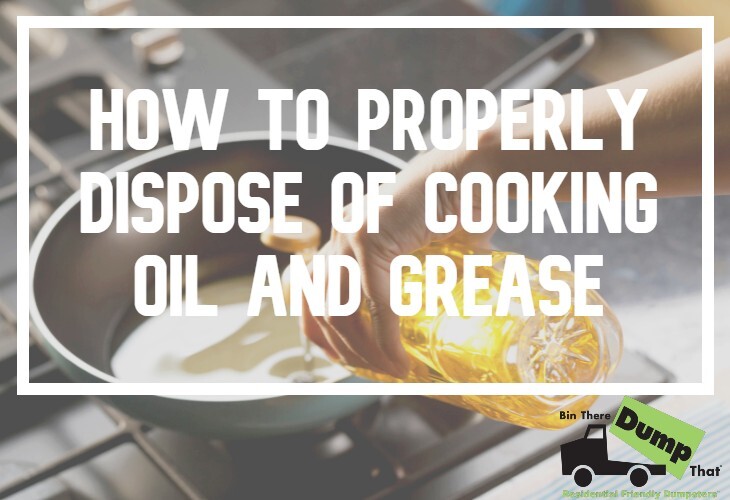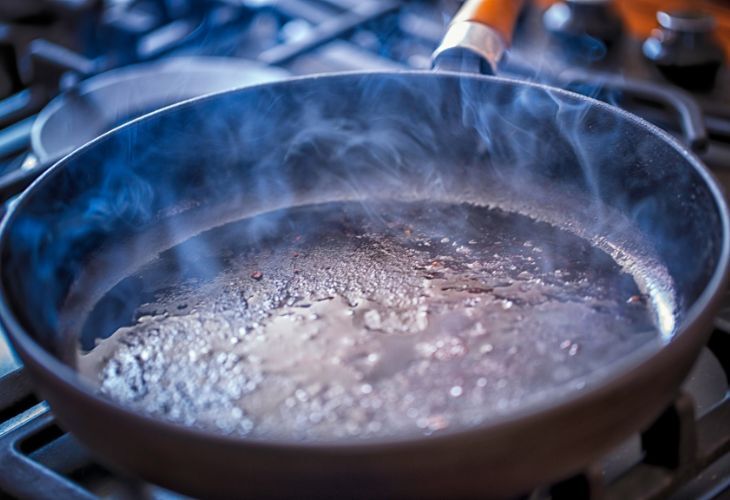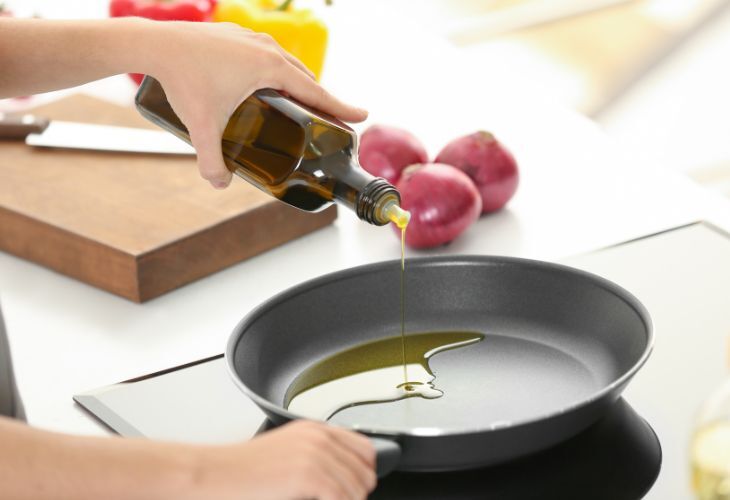
There’s something about the smell of bacon cooking in the morning or chicken frying in a pan that makes many mouths water. It might be because it reminds us of our mom cooking breakfast on Sunday morning or that weekly meal at grandma’s.
Whatever the reason, it’s hard to deny that food cooked in grease is still a big part of daily life in many homes. That food may taste great, but cleaning up the greasy mess is the hard part and a lot of us just aren’t quite sure what to do with that leftover cooking oil. In this guide we’ll look at the best ways to clean up the mess and the disposal methods that should be avoided.
There are a couple of ways to dispose of cooking grease safely. First, if it’s just a small amount you should be able to soak it up with a paper towel and place the used towel into your green bin for recycling.
If it’s a large amount of grease you can either leave it in your cooking pan and wait for it to cool and harden, or once it’s cooled down enough, pour it into a container and place it into the freezer to harden quickly. Once your cooking grease has solidified you can safely remove it from the pan or container and deposit it in your green bin or garbage container.
If the cooking oil is relatively clean you may want to consider waiting for it to cool slightly and then store it in a container for reuse. When it is time for final disposal it should always end up in your green bin, not in your regular garbage if that’s an option in your area.
Letting it harden makes it much easier to deposit into your bin and minimizes the slick mess it can leave behind.

Vegetable oil should never be poured down your drain. Hot grease can cause damage to your pipes and sewer system. Even if it’s had time to cool down it still should go in the drain. The grease will harden as it cools and get stuck in your pipes. Over time, that can lead to grease build up and drain clogs.
There are plenty of different ways to dispose of cooking oil, but that doesn’t mean they’re all a good idea. The following is a quick list of the methods to avoid and then we’ll take a look at each method individually:
Plumbers make a lot of calls to homeowners that have clogged their kitchen sink with cooking oil. It doesn’t matter whether it’s hot or cold, cooking grease should never be deposited down your kitchen drain. It tends to congeal and clump.
Even if the oil you’ve poured down the sink doesn’t clog your pipes it can still cause harm further down the line in the city sewage system. Later on, those hardened clumps of grease start to attract other material and that can lead to clogs in the system that cause major damage.
It's reported that cooking oil and grease disposed down the drain cause 47% of sewage clogs.

Surprisingly, there are plenty of homeowners that choose to dump cooking oil in the toilet instead of the kitchen sink. They’re under the false assumption that because the pipes are larger it won’t clog the system in your home. That’s not the case and again, even if the used oil does make it out of your home into the city sewage system it can still cause plenty of problems.
If you can’t throw cooking oil down the drain then what do you do with it? Many homeowners turn to their compost piles as another option. This is the wrong solution for a couple of reasons.
If you plan on using your compost pile as fertilizer down the line, the grease can harm the chemical properties of the compost making it unusable.
Perhaps a bigger problem is that the grease has a tendency to attract rodents and other small animals. If you love the smell of grease, it probably shouldn’t come as a surprise that those small critters scurrying around outside do as well.
Another common method used by homeowners for disposing of cooking oil is to simply dump it out at the back of the yard away from the house. This is another one of those bad ideas. Once again, this can attract rodents you don’t want in your yard and it can also damage your lawn. The last thing you'll want is rodents ruining your garden bed.
Now that we’ve identified the wrong ways to dispose of cooking oil, it’s time to take a look at better ways to deal with old grease. Fortunately, there are a couple of great options to choose from and they’re easy to use at home.

A simple solution for handling used cooking oil is to reuse it. You’ll want to wait for it to cool down a bit and then pour it into a sealable container. The used oil should then be stored in a cool place such as your refrigerator or cold cellar until you’re ready to use it. It’s best to use it no more than 2 or 3 times or it may become rancid.
For small amounts of grease you can usually soak it up with a paper towel and then deposit it into your green organic bin if your city or county offers this type of service. If not, the paper towel can be deposited in the garbage.
For larger amounts of cooking oil, baking soda can help. When you add it to grease it neutralizes the acids and breaks it down, turning it into a paste that can be easily cleaned up and deposited in the organic waste or garbage depending on where you live.
One other way to dispose of grease safely is to simply wait for it to cool and then pour it into a sealable container. That sealed container can then be placed in the garbage safely. Just make sure there are no signs of leaks first.
Friendly, professional customer service, plus fair pricing, equals value.